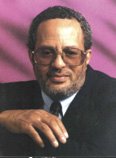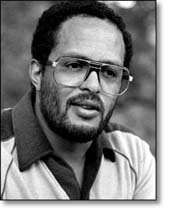“…God is not just classical. God is jazz. Not only does he have an eternal and unchanging purpose, but he is intimately involved with the difficulties of sparrows and slaves. Within the dynamic of his eternal will, he improvises. God’s providential jazz liberates slaves and weeps over cities. Jazz can be robustly exultant or blue; God has been triumphant and also sad. Jazz portrays the diversity, freedom and eternal freshness of God. The genius of jazz theology is the theology as it is done.”
“Theology as it is done.” Something in us tells us that our knowing about God is to be more than an intellectual knowing. The demons could pass any classical theology exam but do they know God? We long for the kind of knowing that goes beyond the intellect without bypassing the intellect. The kind of knowing of God and being known by God that made God take Enoch early. The kind of knowing that rivals Moses and Joshua as they spoke with God face to face. The kind enthrallment with God that kept Jesus up all night in conversation with his Father.
Jazz theology helps with this kind of knowing.
It was J.I. Packer who said in his class work, Knowing God, that it is possible to know a lot about God without ever knowing God. How do we avoid this? How have you avoided this?


